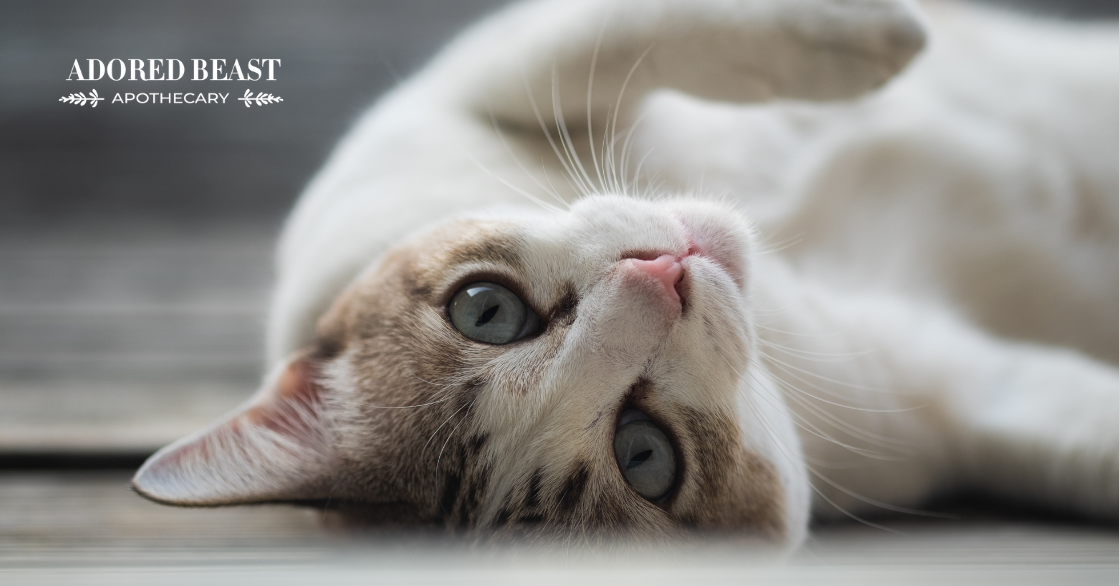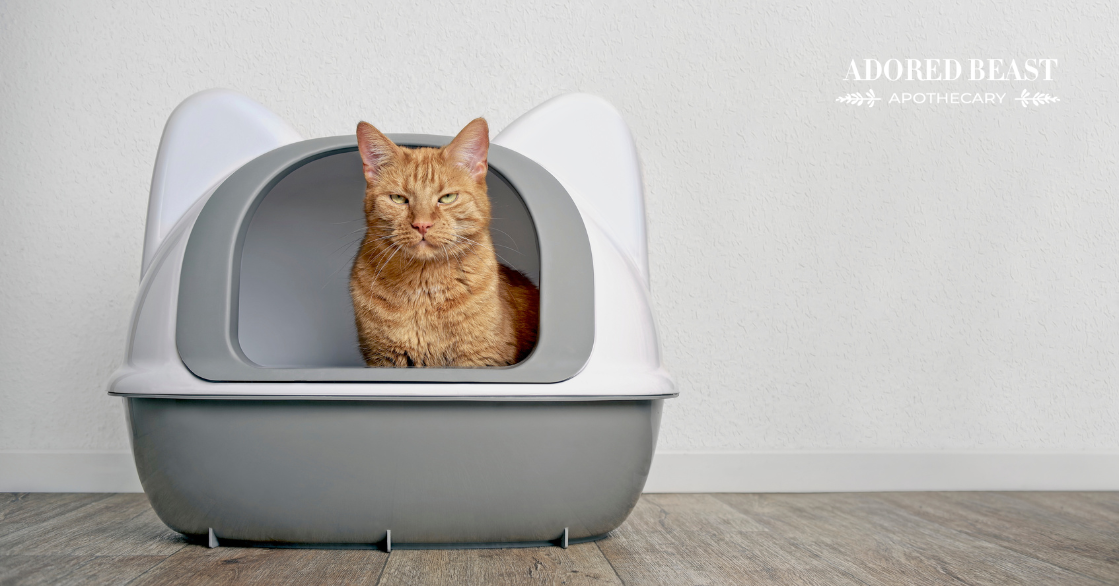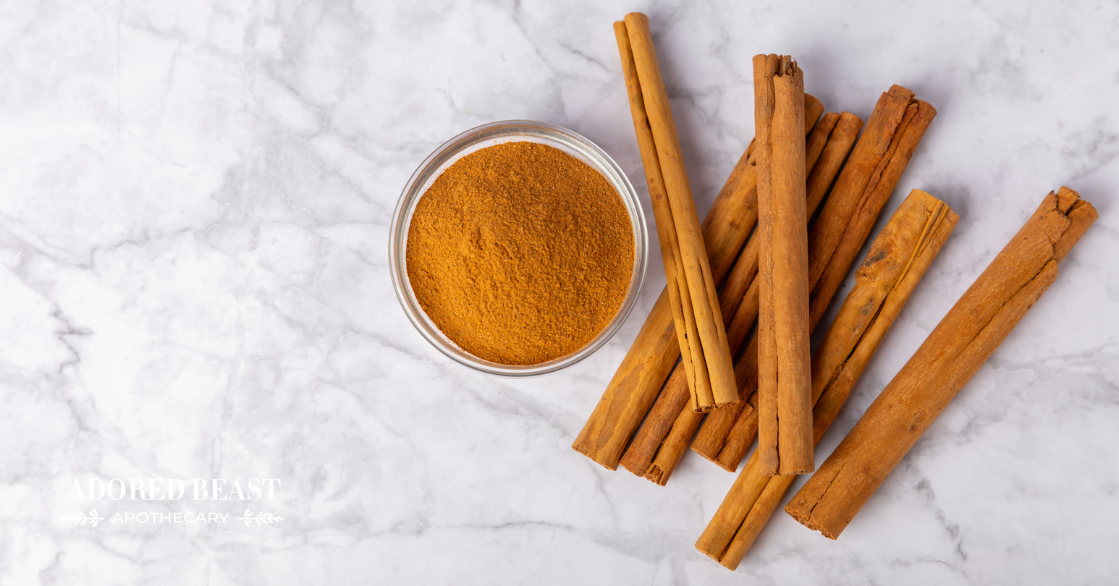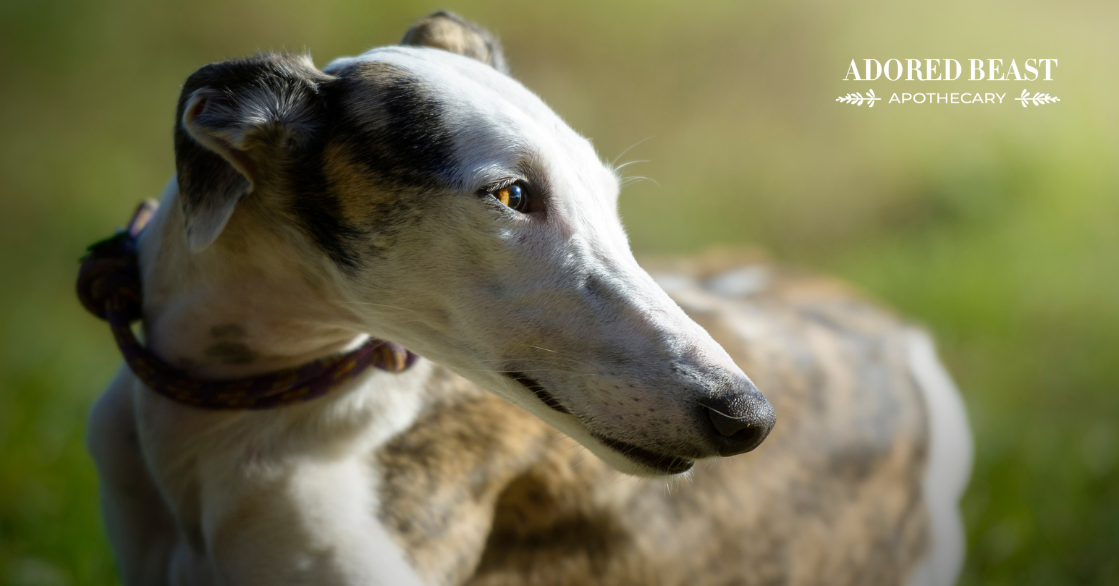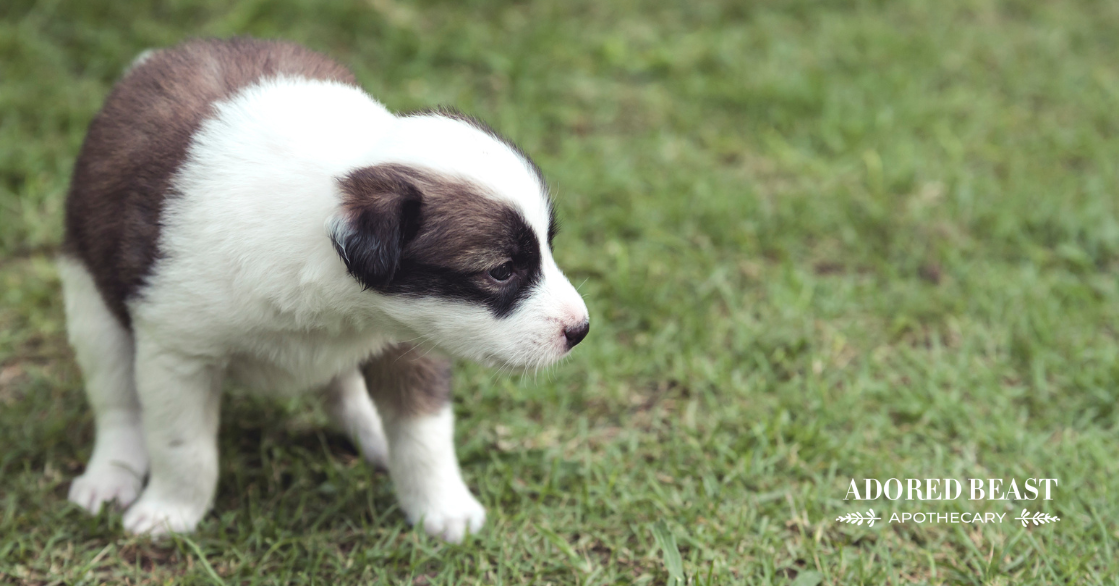Cats are known for their mysterious and sometimes finicky natures, but when it comes to their health, subtle signs can signal underlying issues.
Cats can be very stoic creatures, but when a digestive concern is present, it can usually be fairly easy to tell something is up.
One such concern that many cat owners face with their beloved felines is inflammatory bowel disease (IBD). In this blog, we’ll delve into the symptoms, causes, prevalence, and holistic options for managing IBD in cats.
Understanding IBD in Cats
Feline inflammatory bowel disease (IBD in cats) is a condition where the gastrointestinal tract becomes chronically inflamed. Inflammatory cells infiltrate the walls of the GI tract, thickening them and disrupting the ability of the GI tract to properly digest and absorb food. IBD is relatively common in cats, especially in middle-aged to older kitties.
IBD can take different forms depending on where in the GI tract the inflammation occurs, as well as the type of inflammatory cells involved.
If the stomach is inflamed, the condition is called gastritis. If the small intestine is inflamed, it’s called enteritis. And if the colon (large intestine) is inflamed, it’s called colitis.
The exact cause of IBD in cats is not fully understood, but it is believed to be a complex interplay of genetic, immune system, and environmental factors. Potential triggers for IBD include:
- Dietary Sensitivities: Certain ingredients in commercial cat foods may trigger an inflammatory response.
- Allergies: Cats can develop allergies to specific proteins or ingredients in their diet.
- Immune System Dysfunction: An overactive immune system may contribute to chronic inflammation in the gastrointestinal tract.
- Microbiome Imbalance: Disruptions in the balance of gut bacteria may play a role in the development of IBD. Animals can have a poor microbiome from birth if the mother has a comprised or unhealthy microbiome herself, or if she has a low diversity of bacteria. Additionally, intestinal bacterial overgrowth may be a culprit. Drugs or toxins can also compromise the gut.
- Stress and boredom: Environmental stressors, changes, or a history of trauma can contribute to the onset of IBD. Boredom can lead to stress, and these can exacerbate symptoms.
Identifying IBD in cats can be challenging as the symptoms can vary and may mimic other gastrointestinal issues. Common signs of IBD include:
- Vomiting: Frequent or chronic vomiting that doesn’t seem linked to hairballs or a specific diet.
- Diarrhea: Persistent or recurrent diarrhea, which can be watery or contain mucus.
- Weight Loss: Unexplained weight loss despite a seemingly healthy appetite.
- Change in Appetite: An increase or decrease in appetite, or a reluctance to eat.
- Lethargy: A decrease in activity levels and overall energy.
- Abdominal Discomfort: Cats with IBD may show signs of discomfort or pain in the abdominal area.
Holistic Options for Managing IBD
If your kitty has IBD, there are several things that you can do to help manage it.
1. Look at the Diet
Tracking any dietary triggers is very important, and if you know certain foods seem to cause a flare up, remove those from the menu. We are big fans of a species-appropriate raw diet, but some cats cannot tolerate raw food in the beginning, depending on how long their illness has been present and how old they are. In these cases, start with lightly seared or cooked food, and then, if you’re so inclined, very, very slowly switch to raw. Some cats will thrive on a gently cooked diet indefinitely. If you’re unsure about the diet, work with your holistic or integrative veterinarian or animal nutritionist to ensure you’re getting the balance correct.
Helpful tip: understanding your cat’s energetics, and the role food plays in keeping them balanced, can be incredibly valuable, not just on a daily basis, but especially when it comes to IBD. Read more on this here.
One thing we recommend staying away from – and not just for cats with IBD, but all cats – is kibble. Kibble is very dry, and moisture-depleted diets are a huge detriment to your cat’s overall health. The chronic long-term dehydration that comes from eating a dry diet puts your cat at risk for the development of chronic kidney disease which is all too common among aging cats. Cats who eat a moisture-depleted diet may also be at a much higher risk for urinary tract and bladder issues, because dry diets often just don’t contain the level of moisture required to keep the urinary system healthy.
2. Reduce Stress and Boredom
Stress and boredom can both have detrimental impacts on the body when it comes to IBD.
Creating a calm environment can help minimize stress, a potential trigger for IBD. Provide hiding spots, vertical spaces, and a routine that cats can rely on. Help build your cat’s confidence with play. And remember to keep your own stress in check! It’s been scientifically proven that when we stress we excrete a hormone called cortisol – and our cats, with those 200 million scent sensors, can smell it from a mile away and will carry the stress of their owner. There’s more on reducing cat stress in this post.
Provide engagement with things like cat toys, catnip, or a cat tree. Try feeding puzzles, give your cat an empty box, or get a small harness and leash and go for a walk! We have more ideas to help beat cat boredom at this post.
3. Use Helpful Supplements
- Probiotics can help restore a healthy balance of gut bacteria, promoting digestive health. Look for diverse strains and try for species-appropriate ones like our Felix’s Flora. And don’t forget the prebiotics – they feed the probiotics.
- Omega-3 fatty acids can have anti-inflammatory effects and support overall wellness. Our Potent-Sea is a sustainable, earth-friendly option that doesn’t harm the oceans.
- Herbs like slippery elm or marshmallow root may help soothe the gastrointestinal tract and reduce inflammation. NAG (N-acetyl Glucosamine) can also be helpful. It’s like glucosamine for joints – it works its magic on smooth muscle and the mucosal lining.
- Phytoplankton is another good one for functional whole food nutrition. Its cell is smaller than a red blood cell and easy to digest. This is important because malabsorption is a huge part of the merry-go-round of IBD in cats and phytoplankton is cell-to-cell nutrition. It’s completely bioavailable – which means it doesn’t need to be digested and absorbed by the GI tract.
- Pure pumpkin (canned, pure pumpkin is fine) can be great for both diarrhea or constipation. It also helps to soothe that digestive tract wonderfully. It’s like a magical fruit!!
- High-quality, cold-pressed, organic coconut oil can help if the stool is super dry.
4. Try Homeopathy
Homeopathy is a gentle, yet effective, option that can also be helpful. Remedies such as arnica, calendula, and thiosinaminum are all indicated. Work with an animal homeopath or holistic/integrative veterinarian if you’re new to homoeopathy and to tailor a remedy protocol to meet your cat’s specific needs.
Understanding and addressing IBD in cats requires a comprehensive and holistic approach. It can be scary to deal with, but it’s something that responds extremely well to an integrative approach. If your cat has recently been diagnosed with IBD, or even if you just suspect it, there is a huge chance that they can live symptom free for life if the disease is caught early. If your cat has had years of IBD symptoms, and been on drugs for a long time, there are still many things that you can do to help them live a thriving life and derail symptoms before they rear their ugly head. Don’t let the IBD define your animal. The bottom line is, there are myriad ways you can help your beloved feline friend live a long, healthy, happy life.

